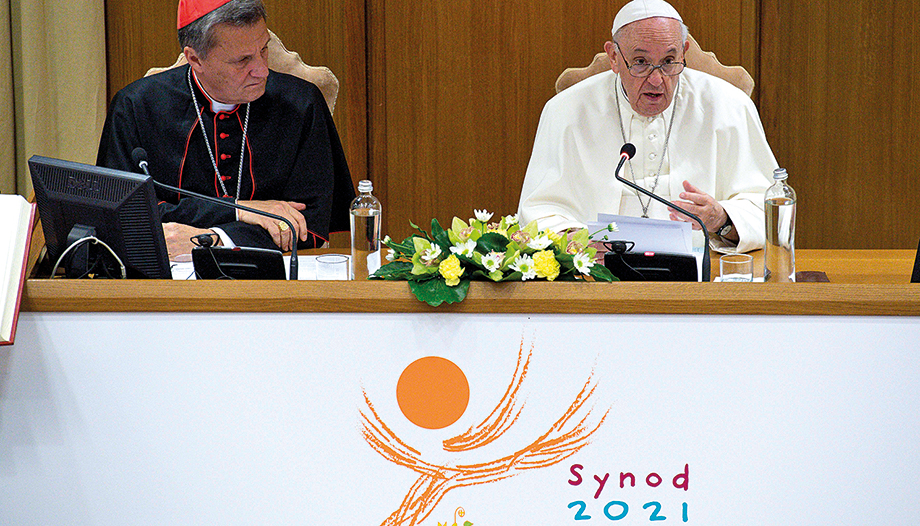"You have come by many roads and from many Churches, each one carrying in his heart questions and hopes, and I am sure that the Spirit will guide us and give us the grace to go forward together, to listen to one another and to begin a discernment in our time, being in solidarity with the fatigues and desires of humanity."
These are the introductory words with which Pope Francis began the synodal process, which will involve all the faithful scattered in every corner of the world and at various levels of responsibility and commitment, starting from their common baptismal belonging, until October 2023.
These words, in our opinion, contain the essence of what the Bishop of Rome intends to give to the whole of humanity so that it may find a ray of hope in the many crises that afflict it.
It is a transfer, but also a commitment. The commitment of a Church that despite the difficulties of the moment, strong in the history that has forged her over the millennia, does not want to abdicate her role as mother and teacher, pilgrimage with her children towards the eternal prize promised by her founder Jesus Christ.
The Pope has been aware of all this since the beginning of his pontificate, and has underpinned all his preaching and his magisterium with major documents, starting inevitably with the Evangelii gaudiumwhich we can say that it is the fulcrum of this global vision that "anticipates" y "covers"the rest.
It is no secret that in the debates that preceded the conclave that elected Jorge Mario Bergoglio, the request for greater collegiality and participation among the different ecclesial bodies resounded on several occasions.
Certainly, we are at a point of no return, and the many "processesThe "movement dynamics" initiated have generated a dynamic movement whose ultimate goal is to become - at the level of the Church and of the faithful, and ultimately of "Christianity" - once again "protagonists" in accompanying the natural development of society and of peoples. Certainly, it is not a path without obstacles or risks, but the objective is not so much to "solve" or "fix" as to stimulate understanding and the desire for "solution" and "fix", not as a make-up but as a profound change that begins first and foremost within.
Let us return to those introductory words at the beginning of Synod 2021-2023.
"They have come from many roads and from many churches.". What we are trying to express here is the variety and universality of the People summoned and present in this journey, of which only the beginning is known and not the development, entrusted, as will be said later, to the "surprises" of the Holy Spirit.
"Each of us carries in our hearts questions and hopes.". Here the restlessness and the future perspective of the contemporary era, where people have expectations for which they expect definitive answers, are captured.
"I am confident that the Spirit will guide us and give us the grace to move forward together.". The Pope is aware that without the Spirit, his guidance and grace, no one can do anything, and he reiterates this concretely in the continuation of his reflection.
"To listen to each other and to start a discernment in our time.". Here the two key words that will accompany the synodal journey are evident: listening-which must be communitarian but also and above all personal in prayer-and discernment, as the next stage and as a disposition to truly understand what the Spirit is asking of his Church.
Finally, "being in solidarity with the struggles and desires of humankind". We are all in the same boat and the pandemic crisis has made this very clear; Francis has repeated it several times. So the only way to "come out better" is to apply solidarity, to become close, neighborly and in many cases even tender, which is the style of God, and it is the type of Church to which we all, starting with the Vicar of Christ, aspire in this great process that is opening up in our journey as baptized persons.








